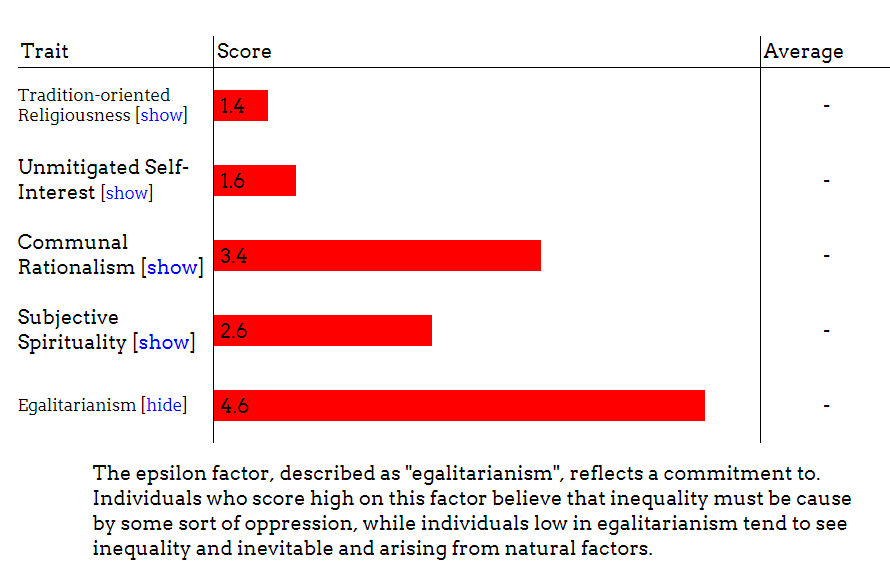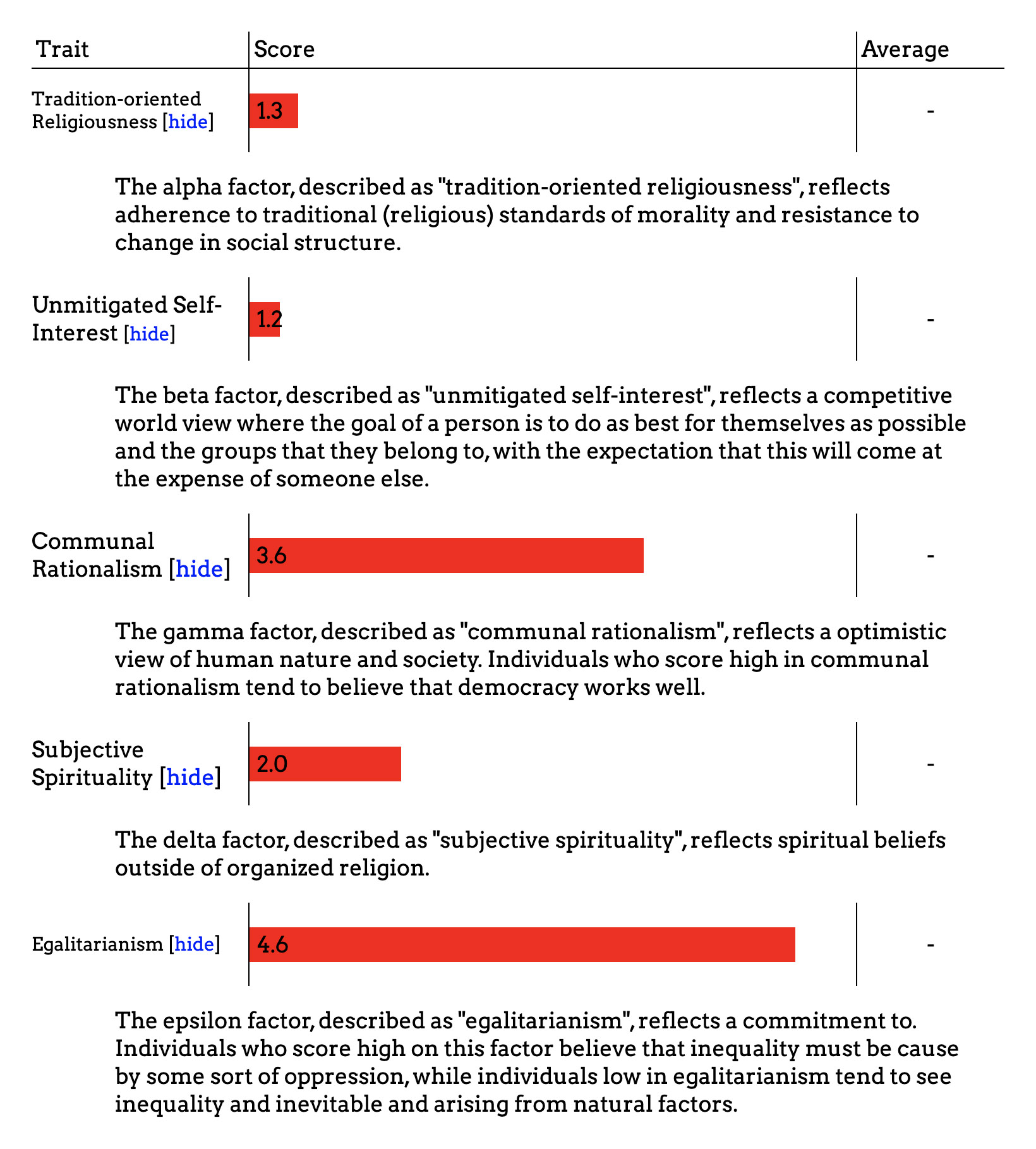This is an interactive version of the Survey of Dictionary-based Isms (SDI-46)
*http://personality-testing.info/tests/SDI-46/
The SDI is a measure of sociopolitical attitudes developed by Gerard Saucier. Its name references the fact that it was derived from searching the dictionary for words describing different philosophies (which often end in "ism", e.g. liberalism, hobbism), which were then reduced down to underlying factors with statistical analysis. The SDI-46 revision was published in 2013.
*http://personality-testing.info/tests/SDI-46/
Gerard Saucier of the University of Oregon has spent much of his career studying political and social attitudes. He has referred to his work as the study of "isms", a reference to the fact that most words used to label political philosophies end in -ism (e.g. conservatism, neoplatonism, feminism, pessimism). In 2000, Based on a statistical analysis of responses to a survey containing 334 -ism words he sampled from the dictionary he has proposed that there are four underlying dimensions of socio-political attitudes. He developed the SDI to measure them. The SDI has gone under several revisions since then and in 2006 a new dimension was added, bringing the number of traits measured to five. His most current version, the SDI-46, was published in 2013 and is used here.
From the abstract:
Factors identified in these studies are demonstrated to show interesting relations with political-party preference, subjective well-being, and change over time in the Big Five personality dimensions.





